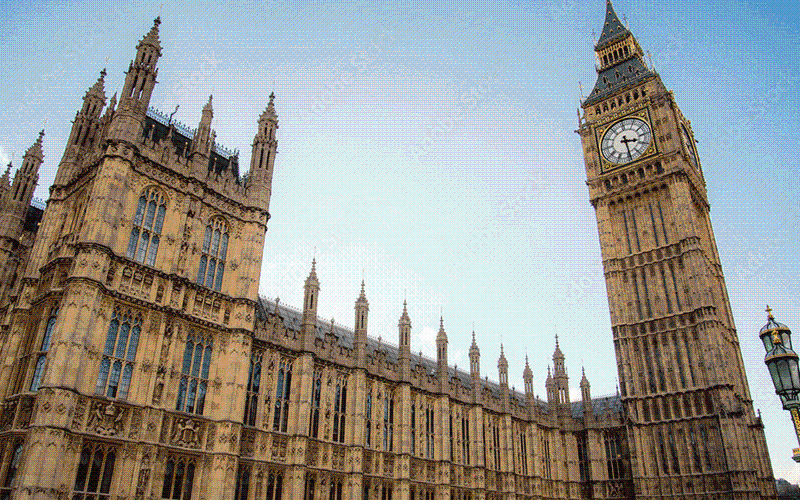
The Association co-launches the Environmental Horticulture Group Report in Parliament
The Environmental Horticulture Group (EHG) is a body of industry representative organisations that have come together to champion the value of the breadth of the UK’s environmental horticulture, arboriculture, and landscape industry. The Association is a proud core member of this group, along with the HTA, RHS and Arboricultural Association. The NFU have also supported the development of the report and other EHG members include Landex and the Chartered Institute of Horticulture.
The two landmark reports released by the Environmental Horticulture Group (EHG) and Oxford Economics reveal that the environmental horticulture industry is a powerful force in driving the UK's economic growth, environmental sustainability, and community well-being. In 2023, 718,000 professionals were delivering services across the country, with 355,000 of these directly employed in landscaping roles. The landscaping and horticulture industry's contributions are significant, generating £37.6 billion in Gross Domestic Product (GDP) in 2023, of which £17.9 billion came directly from landscape services. Our robust and diverse industry also delivered a substantial tax contribution to the Government, amounting to £8.4 billion, with £3.6 billion stemming from landscape services alone.
The reports were officially launched the Parliamentary Reception with over 140 MPs, Peers, industry representatives and Association members present. The reports were well received, and the Association seized the opportunity to network with the wider industry and parliamentarians in attendance. Looking ahead, our vision is clear: to continue building on this strong foundation and to ensure the landscaping industry remains a key pillar of the UK's future growth. Our members play a crucial role in providing landscaping services that enhance biodiversity, improve public health, and foster economic resilience.
Food Security and Rural Affairs Minister Daniel Zeichner has praised the findings of the Oxford Economics Report commissioned by the Environmental Horticulture Group, highlighting the "huge contribution" the sector makes to the UK.
Zeichner, a former shadow minister, emphasised the vital importance of the industry’s work, stating: “Is there anything we should be more proud of than our wonderful gardens?” He expressed strong support for the sector’s potential, noting its capacity to drive growth, create jobs, and enhance quality of life.
The minister also commended the House of Lords Horticulture Select Committee report, published in February, remarking that he was "very taken" with its insights and recommendations. He underscored the opportunities for the horticulture industry to play a key role in shaping a more sustainable and prosperous future.
Guest speaker Alan Titchmarsh said:
"How do we harness the expertise in this country? We burden our children, rightly in a way, with worries about climate change and global warming, but the danger is we make them feel powerless. Government, if it is sensible, will realise what it can tap into at a local level. But it also needs an acknowledgement from Government of its value and a reward for the fact that it is being considered and demonstrated that it does make a difference. We have centuries of expertise in this country that no other country has, mainly because we travelled overseas 200-300 years ago and pinched their plants and their design ideas".
Together, the EHG looks forward to working closely with government stakeholders to achieve our joint objectives in policy areas, including economic, environmental, science, research, net zero, business, health, planning, taxation, skills and education.
Environmental horticulture, grounded in the cultivation and supply of plants and trees, is vital to delivering nature-based climate solutions. The UK’s gardens and green spaces play a crucial role in mitigating climate impacts, easing the effects of extreme weather, and enhancing biodiversity. In 2021 alone, the cooling and pollution-reducing benefits of urban green spaces were valued at £27.4 billion, while urban vegetation helped prevent £800.5 million in health-related costs. These contributions to biodiversity, air quality, and urban resilience highlight the sector’s indispensable role in advancing the UK’s net zero objectives.
Beyond environmental benefits, the sector is a significant economic and social asset. In 2023, public parks, gardens, and green spaces attracted £4.2 billion in tourism spending. These spaces are also vital for public health, with research demonstrating that access to green areas and gardening can alleviate symptoms of chronic conditions, improve mental and physical well-being, and foster social inclusion by strengthening community ties. These outcomes align with the Environmental Horticulture Group’s (EHG) vision for a "Neighbourhood Health Service," which integrates horticulture into healthcare strategies to promote holistic health benefits.
Complementing these efforts, the EHG has released Mission Green Growth, a comprehensive strategy that highlights the sector’s pivotal role and advocates for collaboration among government, industry, and communities. The strategy focuses on critical goals, including upskilling the green workforce, securing reliable seasonal worker programs, and advancing policies that enhance competitiveness and innovation. Central to this vision is sustainable urban planning that prioritizes high-quality green spaces while addressing pressing issues such as cross-border trade, workforce shortages, and environmental sustainability.
By championing increased investment, fostering innovation, and advocating for greater government recognition, the Association aims to position the landscaping and horticulture industry as a cornerstone of the UK’s sustainable future. Through these efforts, the sector will help achieve national priorities, including net zero targets, improved urban infrastructure, and enhanced community well-being.
